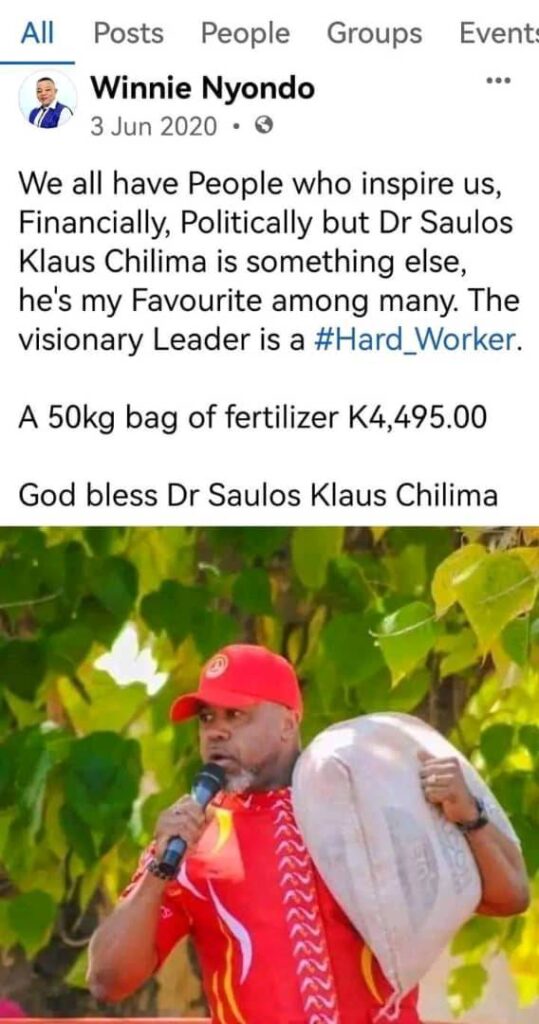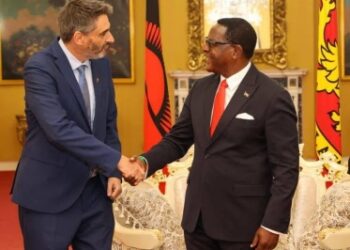As Malawi heads toward the elections next month, the battle of manifestos has already begun.
Political parties are promising a brighter tomorrow, laying out glossy documents filled with aspirations, programs, and pledges. Yet beneath the grand speeches and the staged launches lies a darker truth not all promises are born out of sincerity, feasibility, or realism. Some are rooted in political deception.
Nowhere is this clearer than in the case of the UTM, whose leadership in 2019 and 2020 fed Malawians two of the most politically intoxicating but economically reckless lies in our campaign history: that fertilizer would cost K4,495 per 50kg bag.
The promise of fertilizer at MK4,000, in the first place, was never realistic given the volatility of global fertilizer markets, the import dependence of Malawi, and the weakness of the kwacha.

Even in 2019, agricultural experts dismissed it as a “fantasy pledge” meant to seduce the rural vote. But UTM rode the lie with gusto, convincing farmers across the country that once elected, their burdens would vanish overnight.
In 2020, when UTM entered into an electoral alliance with the Malawi Congress Party (MCP) and other political parties under the Tonse Alliance, this lie was carried forward as one of the flagship promises.
MCP had its doubts, but, facing an election where opposition unity was paramount, it reluctantly adopted the pledge.
As Engineer Vitumbiko Mumba, MCP’s presidential running mate, recently clarified in Karonga, this promise was never originally MCP’s, it was a UTM brainchild.
Once the Tonse Alliance was in government, the UTM’s leader, the late Vice President Saulos Klaus Chilima, was elusive. For three years, he dodged accountability on these promises. Instead of providing a roadmap or explaining how the cheap fertilizer would be implemented, Chilima became increasingly distant, consumed by other political battles and, later, corruption charges.
This left the MCP administration to carry the burden of a broken promise that was not even theirs to begin with.
It is therefore ironic, and politically dishonest, for UTM in 2025 to attempt to rewrite history by blaming MCP for not delivering on the fertilizer promise. The truth is simple: UTM made those promises. MCP carried them into the alliance reluctantly, trusting that UTM had a plan. UTM failed to produce that plan.

Engineer Vitumbiko Mumba’s statement in Karonga has ruffled feathers. But it is, as we’ve seen, defensible on the record. It is also a welcome pivot toward truth-in-politics. Voters can handle realism if it is delivered with respect and paired with credible alternatives.
Critics accuse Mumba of ducking collective responsibility. That’s the wrong read. A coalition is a political vehicle of convenience; it does not erase who authored what.
MCP can and should account for its governing record, including how it managed Agricultural Input Program (AIP), stabilized budgets, or failed to do so. But it should not be gas-lit into owning UTM’s most populist wares as if they were MCP’s doctrinal core.
On balance, Mumba is defending intellectual honesty in a space allergic to it. The electoral payoff for such candour may not be immediate, but it is the only way to rebuild public trust.
One political analyst puts it bluntly: “UTM cannot wash its hands on the Tonse campaign failures when it was the architect of the most unrealistic promises. If anything, they owe Malawians an apology for deceiving them with cheap populism.”
The 2025 campaign is unfolding in a political environment where voters are more skeptical than ever. UTM’s attempt to present itself as a fresh alternative through its new manifesto risks collapsing under the weight of its past lies.
A manifesto can be beautifully designed, but if the electorate does not trust the messengers, it becomes another piece of political litter.
A governance expert, warns: “If UTM does not own its 2020 lies and sincerely explain why they were made, Malawians will see them as DPP’s Team B—tested, tainted, and failed.”
Today, UTM must own up to this deception. Blaming MCP for the non-fulfillment of the fertilizer pledge is not only dishonest; it is a gross betrayal of the same farmers who were misled. UTM cannot distance itself from the very campaign strategy it authored.
If UTM is to be taken seriously in 2025, it must confront its past deceptions head-on. Without this reckoning, UTM risks undermining not only its own campaign but also the broader trust in Malawi’s democratic process. Political lies may win elections, but they always lose governments.
As MCP’s Vitumbiko Mumba rightly reminded Malawians in Karonga, MCP never made those promises. They belonged to UTM. And unless UTM owns its role in those lies, the party will remain a tainted force heading into 2025.
In this electoral cycle, politically, MCP’s decision to run on its own platform is an under-appreciated blessing. First, it clarifies accountability. If MCP wins, it will answer for its manifesto in 2030, not for the fusion cuisine of a marriage of convenience.







